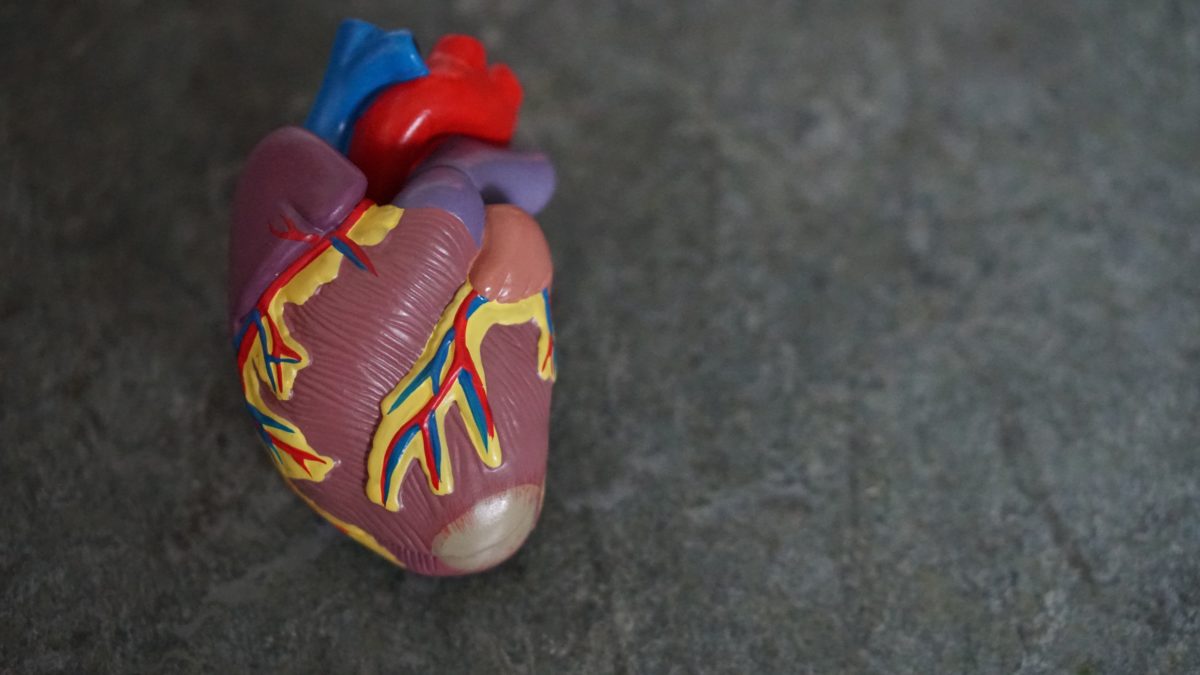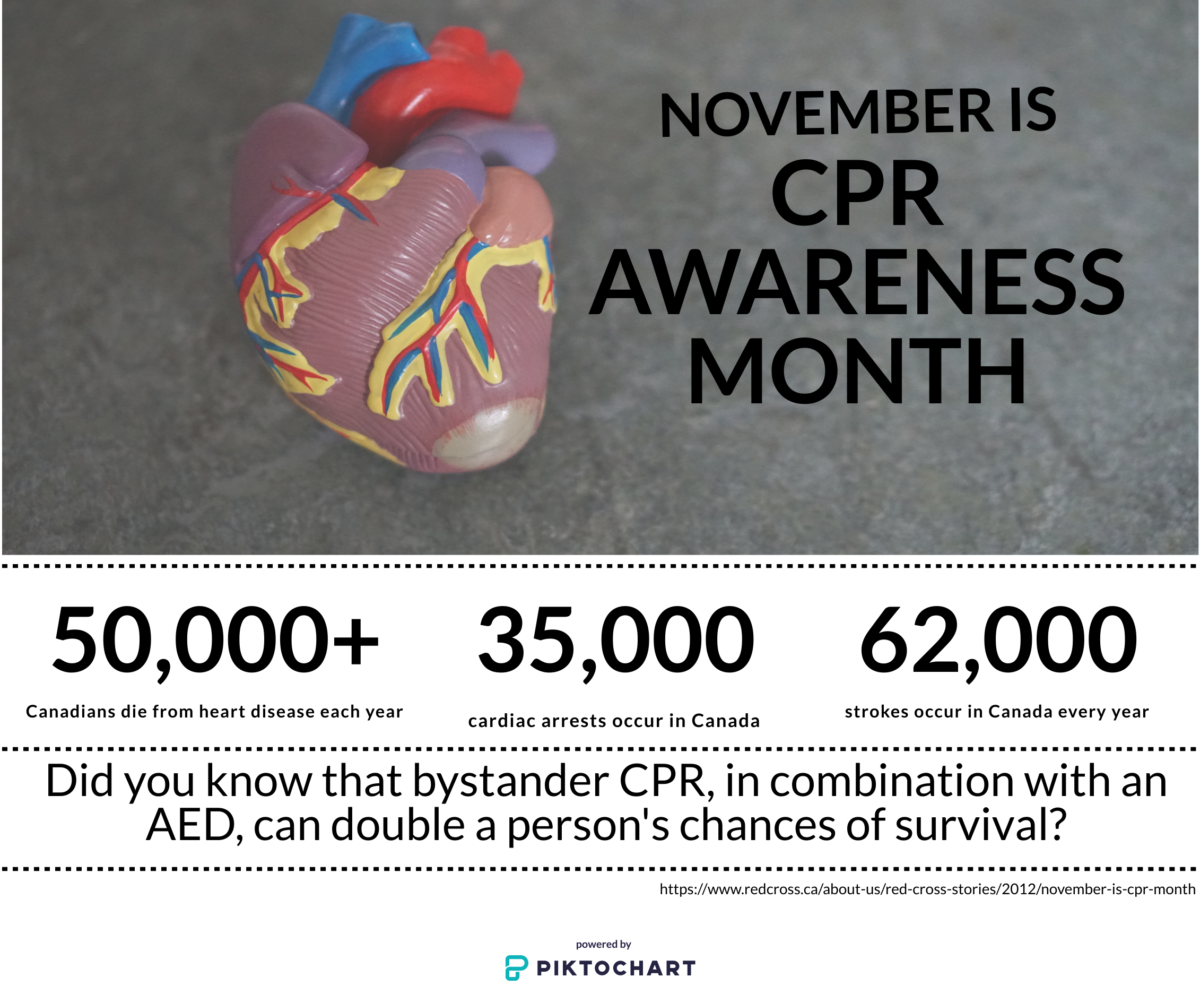Do you know what to do if someone needs help?

CPR, also known as cardiopulmonary resuscitation, is an emergency life-saving technique performed when the heart stops beating. This procedure helps restore blood and oxygen flow after a cardiac arrest. When CPR is used in conjunction with an AED (automated external defibrillator) and administered immediately, this can double or even triple a person’s chance of survival.
Many people, whether they work in health care or not, are encouraged to learn CPR. Maica Irasga, an RPN at St. Joseph’s Health Centre, voiced the importance of CPR training. “It can save someone’s life potentially, it can save your life,” says Irasga via Zoom. “You can use it anytime, any day, on your family, and even on strangers.”
In Canada, it is estimated that 35,000 cardiac arrests occur annually. The majority tend to happen in public places or at home and very few survive. While being certified in CPR is the most effective way to help, it is not the only way. If someone is not trained they can still help out. “Call 911 right away,” says Irasga. “If you don’t know what to do, 911 will help guide you and tell you what you can and cannot do. They will stay on the line with you until EMS arrives.”
During events where CPR is required, citizens may be afraid to help out. This can be due to a number of different reasons. Some include; not knowing how to perform CPR, fear of doing something wrong, the possibility of not being able to save their life, and many more. However, there is a law in place that can protect you if you are not professionally trained in CPR/first aid. It is called “The Good Samaritan Law.” This law protects a rescuer from liability should they attempt to help a victim in distress.
Although, this law does not apply to those who are professionally trained in CPR/first aid. “A person like me who’s trained in healthcare pulls someone out of a car and I break more bones and cause more lacerations, I could technically get in trouble because I can see that the person can get more injuries by me trying to help them,” said Irasga via Zoom. However, this shouldn’t sway people from trying to save people’s lives. Nearly 45 per cent of outside hospital cardiac arrest victims survive when bystander CPR was attempted and administered.
The knowledge of CPR and first aid training, in general, is important. No one knows when their last days are and if something were to happen, whether it be to a loved one, yourself, or some stranger passing you by, having that knowledge may very well save a life.

